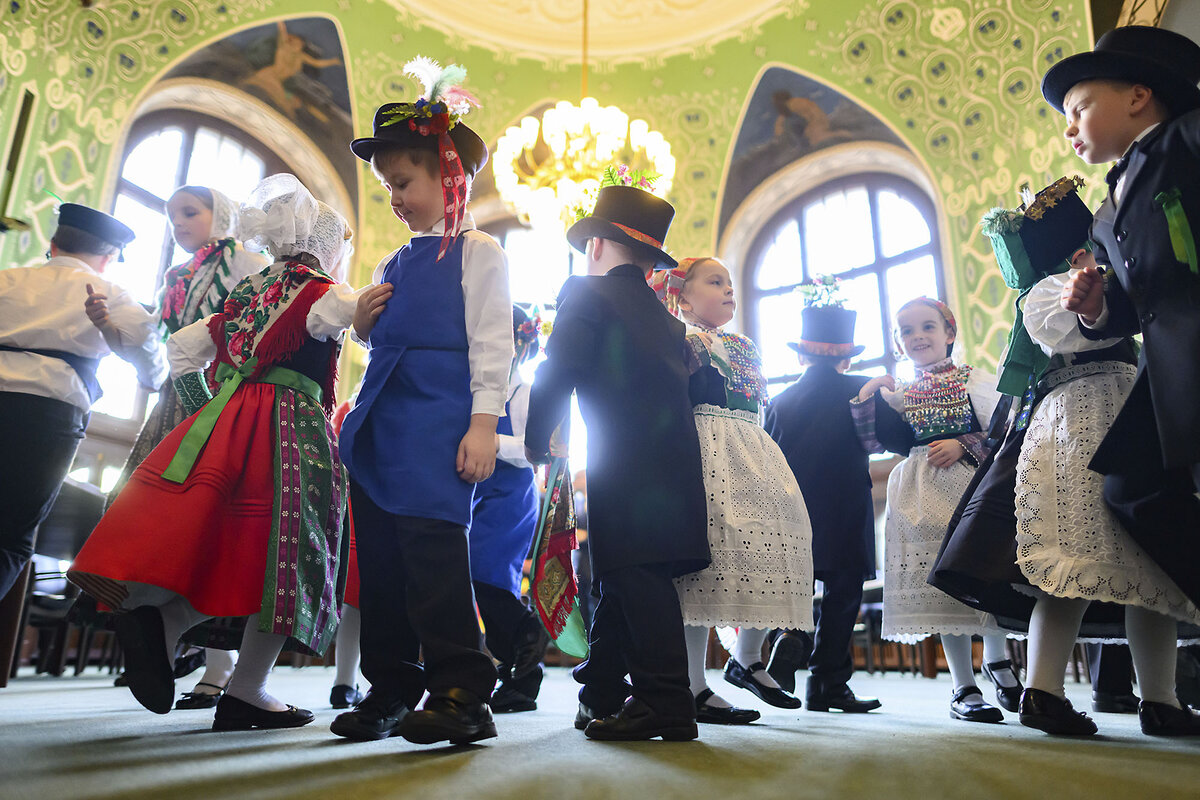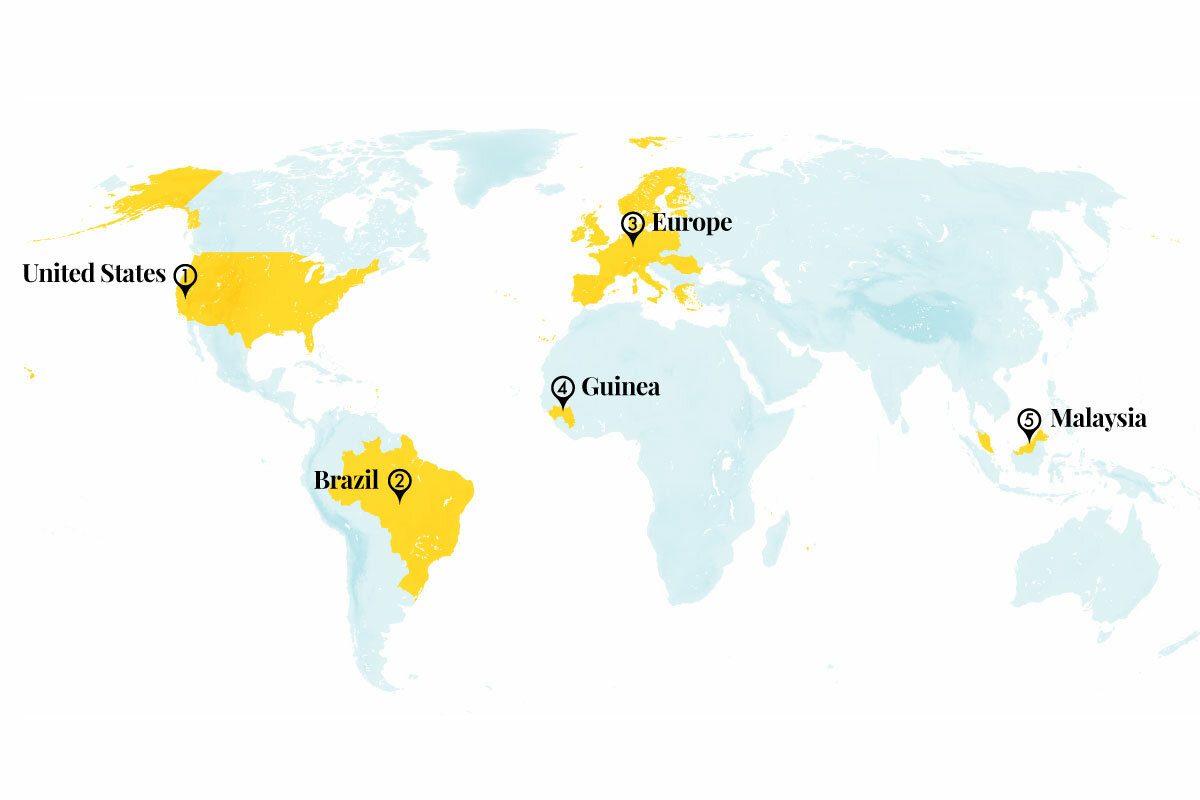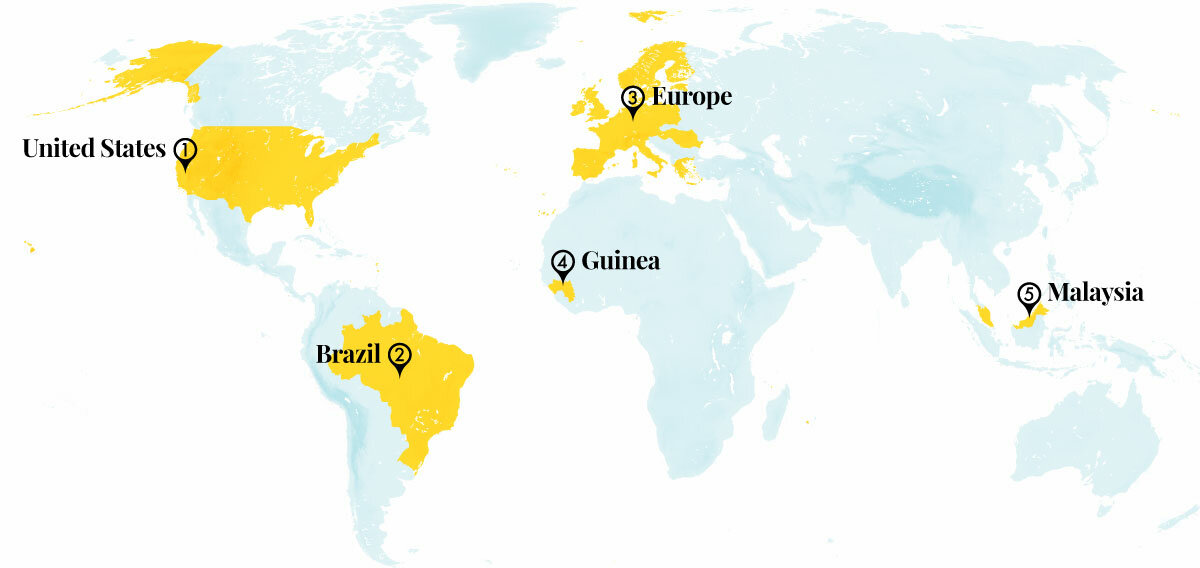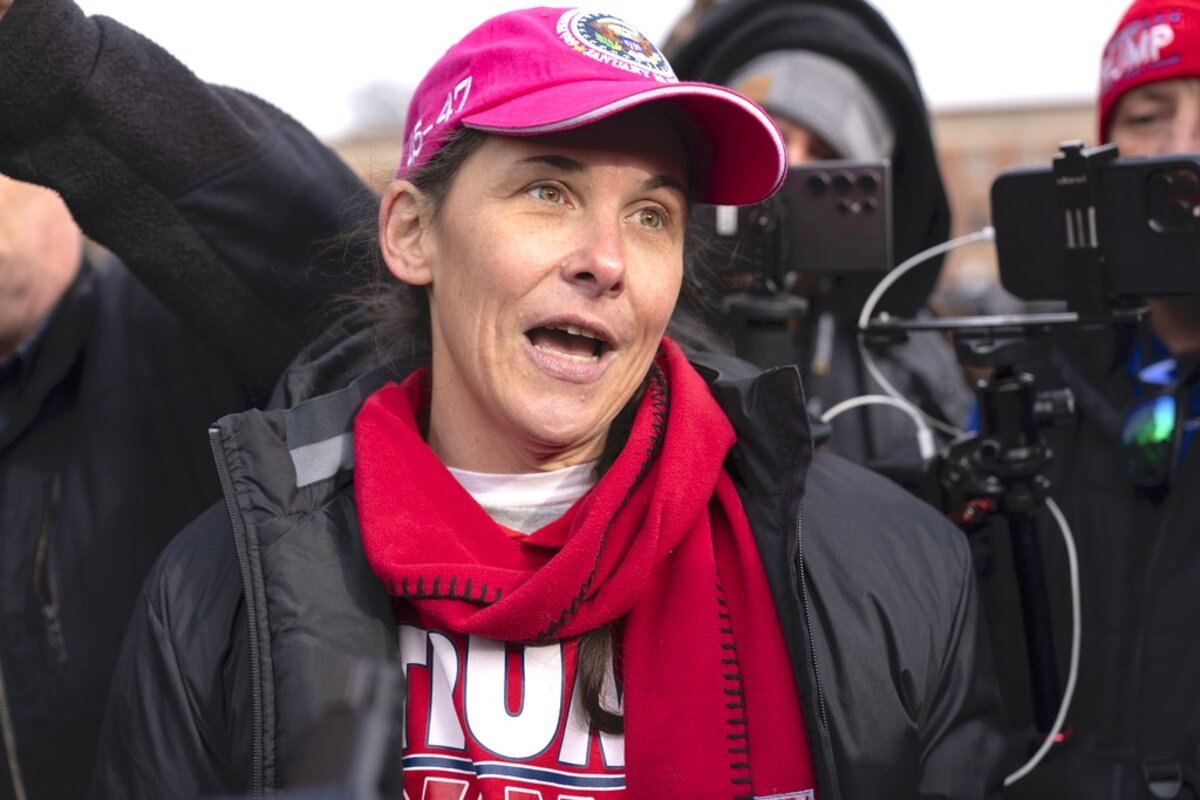• Trump Jan. 6 pardons: Hundreds of Donald Trump supporters who had been serving prison sentences for participating in the Jan. 6, 2021, attack on the United States Capitol are free. The new president pardoned more than 1,500 people.
• Trump immigration crackdown: President Donald Trump’s administration directs federal prosecutors to criminally probe state and local officials who resist immigration enforcement efforts.
• Winter storm hits southern U.S.: A rare winter storm churned across the United States Gulf Coast, breaking snowfall records more than a century old as much of the U.S. remained in a deep freeze.
• Tabloids apologize to Prince Harry: Rupert Murdoch’s U.K. tabloids made an unprecedented apology for intruding in Prince Harry’s life over decades and agreed to pay substantial damages to settle his privacy invasion lawsuit.
• Vivek Ramaswamy leaves DOGE: Vivek Ramaswamy is no longer part of the government efficiency commission that President Donald Trump has championed.

Why is Christian Science in our name?
Our name is about honesty. The Monitor is owned by The Christian Science Church, and we’ve always been transparent about that.
The Church publishes the Monitor because it sees good journalism as vital to progress in the world. Since 1908, we’ve aimed “to injure no man, but to bless all mankind,” as our founder, Mary Baker Eddy, put it.
Here, you’ll find award-winning journalism not driven by commercial influences – a news organization that takes seriously its mission to uplift the world by seeking solutions and finding reasons for credible hope.
Explore values journalism About usMonitor Daily Podcast
- Follow us:
- Apple Podcasts
- Spotify
- RSS Feed
- Download
 Mark Sappenfield
Mark Sappenfield
The first Israeli hostages freed in the ceasefire are starting to come home. Surely, most people can understand the emotions involved – loved ones and innocent civilians freed after more than a year in captivity. But for Israel, it means something more. Today, Dina Kraft explores a profound moment in the nation’s history.
Already a subscriber? Log in
Help fund Monitor journalism for $11/ month
Monitor journalism changes lives because we open that too-small box that most people think they live in. We believe news can and should expand a sense of identity and possibility beyond narrow conventional expectations.
Our work isn't possible without your support.
News briefs
Today’s stories
And why we wrote them
( 6 min. read )
As Israelis celebrate the return of hostages held in Gaza, they are also anguished over the long time it took to bring them home. A nagging question for many is whether a social contract of mutual responsibility has been broken.
Monitor Breakfast
( 3 min. read )
The fifth president of Georgia says her homeland is not important to the United States solely or even primarily because its democracy and Western values are under threat.
Instead, Salome Zourabichvili, who is now the leader of Georgia’s grassroots opposition movement, underscores the U.S. interests at stake in a region that in recent years has shifted in favor of Russia, China, and even Iran.
Ms. Zourabichvili refused to step down this past December when Mikheil Kavelashvili was inaugurated as Georgia’s new president after elections that many Georgians and most Western countries dismissed as fraudulent.
Calling herself Georgia’s “only legitimate president,” Ms. Zourabichvili is touring European capitals and now Washington, warning that without a strong and united response from Western powers, Russia and China will extend their dominance westward.
“I told President Trump that this is a strategic region that cannot be forgotten by the United States,” she said to a gathering of journalists organized by the Monitor in Washington Wednesday morning.
For the sake of global stability, the world’s powers, including the U.S., “need to finally get Russia to accept to become an important power but ... one that lives within its borders,” she says. “This ends when Russia has borders.”
The Explainer
( 5 min. read )
Congress and the Supreme Court recognize national security concerns around the Chinese ownership of TikTok. Those issues will need clarifying as President Donald Trump seeks a deal to keep the app going for U.S. users.
( 3 min. read )
Egg prices have reached record highs, as egg farmers look for ways to curb the annual bird flu outbreak. Stricter protocols and vaccines could help, but the industry is still seeking a solution.
Points of Progress
( 4 min. read )
What does it mean to have your country finally accept you? Or to welcome home a sacred object that was taken from your people centuries ago? Our progress roundup takes a look, and notes how hospitality to birds on California rice farms aids their migration.
The Monitor's View
( 3 min. read )
Presidential acts of forgiveness in America seldom rattle confidence in the integrity of the judicial system or the inviolability of the rule of law. That is what makes this week different.
Just before leaving office Monday, President Joe Biden commuted the sentence of an Indigenous activist convicted in 1977 of killing two federal law enforcement agents. A few hours later, newly sworn-in President Donald Trump pardoned almost everyone – more than 1,500 people – convicted for participating in the attack on the U.S. Capitol on Jan. 6, 2021. He further ordered the Department of Justice to suspend all ongoing prosecutions related to the event.
The clemencies drew sharp criticism from members of Congress from both parties, police unions, and the FBI. Yet two important points bear noting. First, no crimes were expunged. Mr. Trump’s pardons apply to “individuals convicted,” meaning each person’s criminal record stands – notably, acts of violence against police.
Mr. Biden, meanwhile, allowed Leonard Peltier, of the Turtle Mountain Band of Chippewa, after nearly half a century in prison, to serve the remainder of two life sentences under house arrest. His convictions stand.
Second, at a time when many people in the United States and other countries see violence as an acceptable expression of political grievance, clemency – or mercy – can coax the higher aims of justice through contrition and reconciliation.
The newly published 2025 Edelman Trust Barometer, an annual measure, found rising levels of public anger and distrust in government in 17 of 28 countries studied. The survey found 23% of people approve of threatening violence or committing violence to drive change. The solution for this global rise in political grievance involves a “straightforward but often challenging first step: listening,” wrote Kirsty Graham, Edelman’s U.S. CEO.
During nearly four years of Jan. 6 trials, many defendants expressed regret for participating in the Capitol riot. That may be one reason judges tended toward handing down lighter sentences than prosecutors sought. Remorse is hard to measure. But as U.S. District Judge Tanya Chutkan told one Jan. 6 defendant, it requires reflection and reform. “I can’t look into your heart or your mind,” she told a defendant at a 2021 sentencing hearing. “The way you conduct your life after this case is going to speak volumes about whether you are truly remorseful.”
Writing on the virtues of presidential clemency in the Federalist Papers, Alexander Hamilton observed that “In seasons of insurrection or rebellion, there are often critical moments, when a welltimed offer of pardon to the insurgents or rebels may restore the tranquillity of the commonwealth.”
The pardons this week may be one of those moments. Pamela Hemphill, a Jan. 6 defendant from Idaho, rejected Mr. Trump’s gesture. “We were wrong that day,” she told the BBC. “I pleaded guilty because I was guilty, and accepting a pardon also would serve to contribute to ... [a] false narrative” that the 2020 election was stolen.
Another defendant expressed a chastened sense of gratitude. “I feel like a fool because I walked into something unexpected,” Rachel Powell told a CBS News affiliate upon her release from prison Tuesday. “That doesn’t excuse my behavior that day, but I can’t go back. I can only go forward. Let’s go forward as a country and heal.”
A Christian Science Perspective
Each weekday, the Monitor includes one clearly labeled religious article offering spiritual insight on contemporary issues, including the news. The publication – in its various forms – is produced for anyone who cares about the progress of the human endeavor around the world and seeks news reported with compassion, intelligence, and an essentially constructive lens. For many, that caring has religious roots. For many, it does not. The Monitor has always embraced both audiences. The Monitor is owned by a church – The First Church of Christ, Scientist, in Boston – whose founder was concerned with both the state of the world and the quality of available news.
( 3 min. read )
God, who is Spirit, sees only spiritual reality. As children of Spirit, we can pray to see as God sees and discern what He might say about each situation we encounter.
Viewfinder

A look ahead
Thank you for joining us today. Please come back tomorrow for our story about the role of faith in times of disaster. Sophie Hills and Francine Kiefer explore how, even as houses of worship have burned down in Los Angeles, they are still doing the work of fellowship and caring for their neighbor.
Also, due to a technical hiccup, Tuesday’s Christian Science Perspective did not appear in the Daily email. You can read it here.









